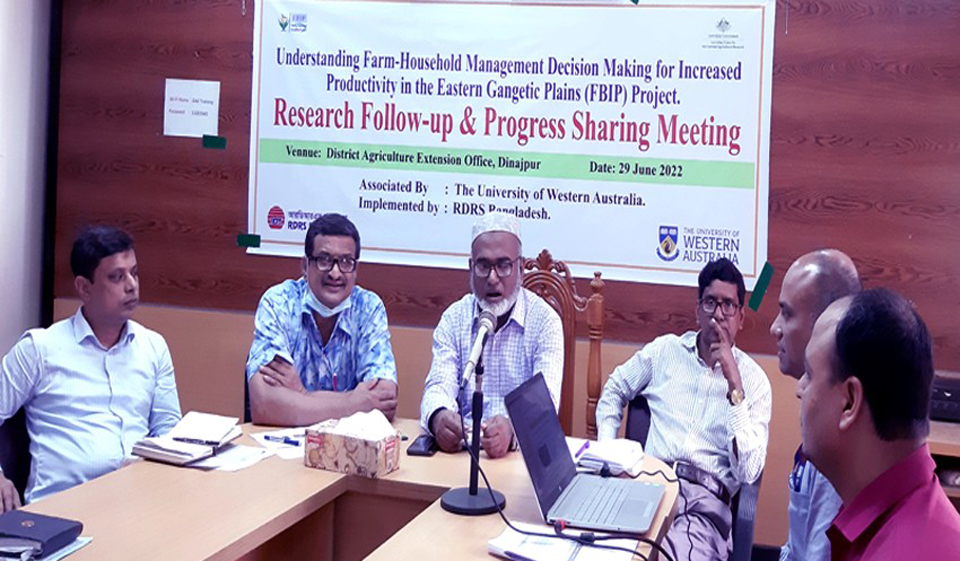
DINAJPUR, June 30, 2022 (BSS) - Agriculturists at a meeting have said acceptance of sustainable agricultural technologies at farmers' levels have become a must for achieving food and nutrition security.
They made the observation at the 'District Level Research Follow-up and Progress Sharing Meeting' organized by RDRS Bangladesh with assistance of the Department of Agricultural Extension (DAE) at its office here on Wednesday afternoon.
The event was arranged under the 'Understanding Farm Household Management Decision making for Increased Productivity in the Eastern Gangetic Plains (FBIP)' Project with financial support from the University of Western Australia.
The project is being implemented in six upazilas of Dinajpur, Nilphamari and Lalmonirhat since July 2018 to find out social, cultural and psychological perspectives of farmers in decision making regarding adoption of newer technologies and practices.
Deputy Director of the DAE for Dinajpur Agriculturist Md. Manjurul Haque attended the meeting as the chief guest.
Rajshahi University teacher Professor Dr. Farid Khan virtually discussed the results of the ongoing research in details as a special guest.
Hajee Mohammad Danesh Science and Technology University, Dinajpur Agriculturist Professor Dr. Saiful Huda analyzed and discussed the results of the ongoing research.
Dinajpur District Training Officer of the DAE Agriculturist SM Abu Bakkar Saiful Islam and its Additional Deputy Director Agriculturist Md. Mahbubur Rashid attended the meeting and shed light on various aspects of the research.
Research Associate of the FBIP project of RDRS Bangladesh Md. Mahafuz Alam presented details of the research findings.
"The FBIP project aims to improve productivity, income and food security of smallholder farming households through a better understanding of behavioral economics and its applications in farm management decision-making," he said.
Some 780 farmers were surveyed this year under the research program to find out how their behavior influences the decision-making process in adopting new technologies including conservation-based agricultural technologies using their behavioral insights.
"We monitored survey activities involving farmers and their behavior in decision-making process in adopting and adapting to new technologies like low-tillage farming of wheat, mustard and jute and zero-tillage cultivation of maize and paddy," he added.
The chief guest gave special instructions to the field-level Sub-assistant agriculture officers and other officials of the DAE on the extension and popularization of new agricultural technologies at the field levels.
"Popularization of new agricultural technologies have become crucial to enhance productivity, profitability and farm-household incomes to ensure food and nutrition security of small and marginal farmers who are playing a key role towards the direction," he added.